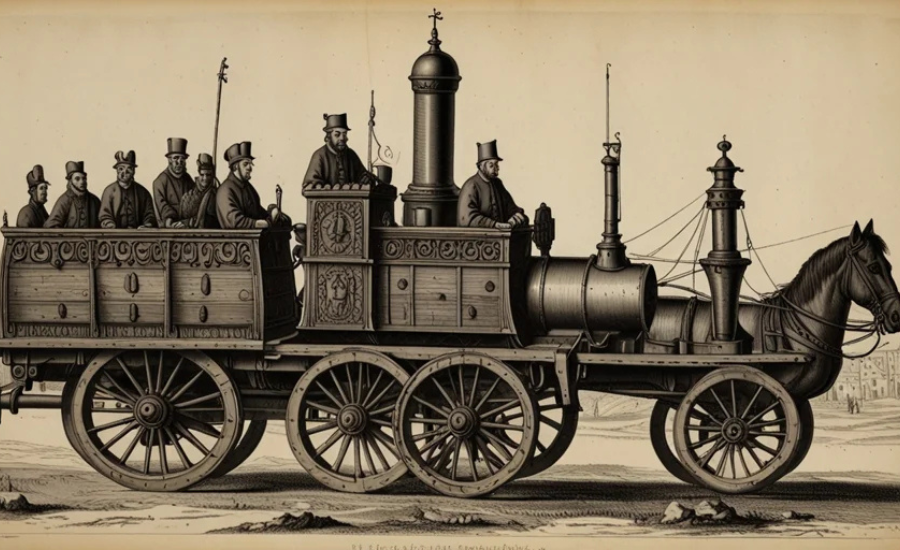Genealogy offers a fascinating way to explore family histories, especially during periods of significant political, social, and religious change. One such intriguing case is the lineage of Heinrich Servais, tracing back to 1555 in Germany. The 16th century was a time of profound upheaval, driven by the Protestant Reformation, which reshaped society and made it challenging to maintain detailed family records.
The seismic shifts of the Reformation created unique obstacles for genealogists, particularly when researching Heinrich Servais Germany 1555 genealogy. As religious and political tensions led to the destruction of records and the breakdown of traditional documentation systems, tracing family histories became increasingly difficult. This period of religious conflict left many records fragmented or lost, especially for common families like Heinrich Servais’s.
Understanding the historical context of Heinrich Servais Germany 1555 genealogy is key to appreciating the challenges faced by genealogists today. The disruption of established record-keeping systems during the Reformation means that much of his family history is obscured. Despite these challenges, genealogists continue to search for clues to uncover the legacy of Heinrich Servais and his ancestors, piecing together the past from surviving fragments.
The Turbulent Times Of 16th-Century Germany And Their Impact On Heinrich Servais Germany 1555 Genealogy

The 16th century in Germany was a period of profound transformation, driven largely by the Protestant Reformation. The religious upheaval, ignited by Martin Luther’s 95 Theses in 1517, fundamentally reshaped the religious landscape of Europe, leading to conflicts between Catholic and Protestant factions. As these divisions deepened, they disrupted established societal structures and institutions, including those that documented family histories. For individuals like Heinrich Servais, living through such turbulent times, the ability to preserve and pass down family records became increasingly difficult.
Heinrich Servais Germany 1555 genealogy exemplifies the struggles faced by many during this era, particularly those from lower social classes or non-noble backgrounds. While the aristocracy and higher echelons of society often maintained well-documented family trees to solidify their power, commoners like Heinrich Servais were less likely to have had the resources or connections to ensure the preservation of their lineage. The turmoil of the era, coupled with the lack of official record-keeping, left many family histories fragmented or forgotten.
Religious Upheaval And Its Disruptive Effect On Heinrich Servais Germany 1555 Genealogy
The Protestant Reformation had a profound effect on the preservation of family histories, particularly in regions like Germany, where the conflict between Protestant and Catholic forces was most intense. Religious authorities who had traditionally maintained parish records, such as baptisms, marriages, and burials, were often caught up in the upheaval. In many instances, church records were destroyed, neglected, or left incomplete, making it nearly impossible for genealogists to track the lineage of individuals like Heinrich Servais.
The absence of comprehensive church records creates a significant challenge for anyone attempting to trace Heinrich Servais Germany 1555 genealogy. Family histories that were once meticulously recorded by religious institutions became lost in the chaos of religious conflict. This disruption, combined with the political instability of the time, meant that many records were either never created or were destroyed as a result of wars and societal breakdowns. For lower-class families like the Servais family, where documentation was already sparse, the task of tracing their genealogy becomes even more complex.
The Struggles Of Documenting Women In Heinrich Servais Germany 1555 Genealogy

One of the most significant challenges when researching the genealogy of individuals like Heinrich Servais is the lack of documentation regarding women in 16th-century Germany. Women, especially those from common or lower-class backgrounds, were often excluded from historical records unless they belonged to the aristocracy or had notable social or political influence. This gap is particularly problematic for genealogists attempting to trace the maternal lines within Heinrich Servais Germany 1555 genealogy.
During this era, societal structures and norms relegated women to a largely invisible role in historical documentation. Their lives were seldom recorded in parish registers unless they were directly linked to male heirs or were of noble descent. For genealogists researching the family history of Heinrich Servais, this means that vital details regarding his female ancestors are likely missing or incomplete. As a result, the maternal side of his family remains largely undocumented, posing a significant obstacle to piecing together a complete family tree.
Political Instability And Its Effect On Heinrich Servais Germany 1555 Genealogy
In addition to religious upheaval, political instability also played a critical role in the challenges of tracing Heinrich Servais Germany 1555 genealogy. The Holy Roman Empire, which governed much of the German-speaking world, was a decentralized entity composed of various states, duchies, and bishoprics. The constant shifting of power between Catholic and Protestant factions led to a breakdown in the preservation of records.
Wars between these factions, such as the Thirty Years’ War, further exacerbated the situation, often leading to the destruction of records in areas heavily affected by conflict. For individuals like Heinrich Servais, the political turmoil of the time meant that official records were likely incomplete, lost, or destroyed in the chaos of these wars. This created an additional layer of difficulty for genealogists attempting to reconstruct the Servais family’s history, as vital documents that could have provided essential clues were either never created or were lost in the aftermath of political and religious strife.
The Role Of Local And Regional Archives In Tracing Heinrich Servais Germany 1555 Genealogy

Despite the widespread destruction of records during the Reformation, some local and regional archives still hold valuable information for genealogists researching figures like Heinrich Servais. These archives contain a variety of records that were sometimes preserved despite the broader chaos. For example, tax records, land ownership documents, and legal disputes may offer crucial insights into the lives of commoners like Heinrich Servais.
Regions like Württemberg, Saxony, and Bavaria, which had strong Lutheran or Catholic populations, may have preserved certain records that survived through these periods of instability. These local archives represent one of the few remaining avenues for genealogists hoping to recover the fragmented family history of Heinrich Servais Germany 1555 genealogy. By piecing together these surviving records, genealogists can begin to reconstruct the life and legacy of individuals who lived through one of Europe’s most tumultuous periods.
The Evolution Of Genealogy In Post-Reformation Germany And Its Relevance To Heinrich Servais Germany 1555 Genealogy
The chaos of the Reformation eventually led to significant changes in how genealogies were recorded and passed down in Germany. In the wake of religious conflict and the destruction of church records, new forms of record-keeping began to emerge. Some Protestant communities, in particular, established civil registers to document births, marriages, and deaths. While these registers were not as reliable or comprehensive as the earlier church-based records, they represented an important step toward more systematic record-keeping.
For genealogists researching the legacy of Heinrich Servais Germany 1555 genealogy, these post-Reformation records can provide vital clues. Though not as complete as earlier documents, these civil registers offer a more secular means of tracing family history. In many cases, these records provide the only surviving documentation for families like the Servais family, whose history may have been lost or overlooked during the upheaval of the 16th century.
Overcoming The Obstacles Of Genealogy Research In Reformation-Era Germany

Researching family history in 16th-century Germany, especially during the time of Heinrich Servais, presents numerous obstacles for genealogists. The destruction of church records, the fragmentation of surviving documents, and the absence of comprehensive official records complicate efforts to trace family lineages. However, despite these challenges, genealogists can still find clues through alternative sources such as legal records, land documents, and mentions in rare parish documents.
The study of Heinrich Servais Germany 1555 genealogy offers a unique opportunity to explore the broader historical context of 16th-century Germany. While the gaps in the historical record may never be fully filled, the process of piecing together fragments of the past helps illuminate the lives of individuals who lived through one of Europe’s most turbulent and transformative periods. The search for Heinrich Servais’s ancestors may be filled with challenges, but it also holds the promise of uncovering a fascinating and richly complex family history.
Fun Facts About Heinrich Servais Germany 1555 Genealogy
- Historical Timing: Heinrich Servais lived during one of the most tumultuous times in German history—the Protestant Reformation—which reshaped Europe’s religious and political landscape.
- Fragmented Records: The Protestant Reformation caused significant destruction of church records, making it harder for genealogists to trace family histories, especially for common families like that of Heinrich Servais.
- Role of Local Archives: Despite the widespread destruction, local archives in regions like Württemberg, Saxony, and Bavaria may hold some surviving records, offering genealogists crucial clues.
- Women’s Genealogy: During the 16th century, it was especially difficult to trace the maternal line in family genealogies, as women were rarely documented unless they had noble status or notable social influence.
FAQs About Heinrich Servais Germany 1555 Genealogy
Q: Why is Heinrich Servais Germany 1555 genealogy hard to trace?
A: The primary challenges stem from the destruction of church records during the Protestant Reformation and the political instability of the time. These disruptions left many family histories fragmented or lost, especially for lower-class individuals like Heinrich Servais.
Q: How did the Protestant Reformation affect genealogy?
A: The Protestant Reformation led to widespread destruction of church records, which had been crucial for documenting family histories. As religious conflicts intensified, many official records were lost or never created, complicating efforts to trace genealogies from this era.
Q: Can local archives help in tracing Heinrich Servais’s family history?
A: Yes! While many records were destroyed during the Reformation, some local and regional archives still contain valuable documents such as tax records, land ownership deeds, and legal disputes, which can offer insights into the lives of people like Heinrich Servais.
Q: Were women’s genealogies documented in the 16th century?
A: Genealogy research for women in the 16th century is especially challenging, as women were often excluded from official records unless they were part of the nobility or had social or political influence. This makes tracing the maternal lines of families like Heinrich Servais’s difficult.
Conclusion
The Heinrich Servais Germany 1555 genealogy provides a fascinating glimpse into the struggles of ordinary people living through one of Europe’s most turbulent periods. The disruption of records during the Protestant Reformation, political instability, and the marginalization of women’s roles in historical documentation create significant challenges for genealogists. Despite these obstacles, through the diligent examination of surviving records—such as local archives and legal documents—researchers continue to piece together the fragmented family histories of individuals like Heinrich Servais. Although the gaps in the historical record may never be fully filled, the ongoing search to uncover these stories sheds light on the resilience of families during one of history’s most transformative eras.
Stay connected for the latest updates and notifications by checking out our website: Latest Dash!

